Which transformation is considered a flip or mirror ?
Reflection
If a shape has undergone a dilation, we can consider the preimage and image ___?___ to each other.
Similar
Two figures that have the same shape but have different size are called _____.
Similar
The sum of all interior angles in a triangle will always equal this number.
180^o
What is Slope?
vertical distance divided by horizontal distance
rise over run
y / x
how steep your line is
Rigid transformations maintain size and shape. What is math the term we use for this?
Congruence (congruent)
A dilation might change the size of a figure's side lengths but never the ___?____.
Angles
What are the four types of transformations?
1) Translations
2) Rotations
3) Reflections
4) Dilations
Triangles 1 and 2 each have a 38° angle. Do we have enough information to determine if they are similar?
No. We need to know at least two angles are the same measure (because then the third angle has to match, and angle measures need to be maintained in similar figures)
Find the slope of line a.
*Bonus 100 points if the answer given is 2
What is used or what needs to be known to perform a reflection accurately?
Reflection line or Line of reflection
What is true if a dilation of greater than 1 occurs?
The image will be larger than the preimage
Congruent figures are _____ similar.
(SOMETIMES or ALWAYS)
ALWAYS
What is the measure of the missing angle?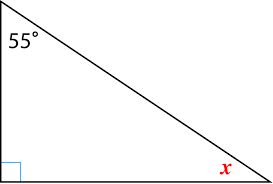
35^o
Find the slope of line b
4/4 or 1/1
**Bonus 100 points for 1
Describe the two pieces of information we need to perform a translation
1) Direction (+/-)
2) Distance (#)
What two pieces of information do you need to perform dilations?
1) Center Point of Dilation
2) Scale Factor
Similar figures are ____ congruent.
(SOMETIMES or ALWAYS)
SOMETIMES
Similar or Not? Why?
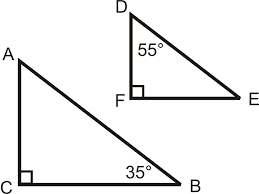
Similar. Because corresponding angles are the same.
<A = <D
<C= <F
<B=<E
Find the slope of line c.
1/2
**LOSE 100 points for leaving it 2/4
Describing a rotation requires these three things.
1) Center (of rotation)
2) Rotation angle (how many degrees)
3) Direction (clockwise or counterclockwise)
How will dilating an 8x6 rectangle by a scale factor of 1/2 change that figure's area?
The area will be 1/4 of the original
8x6 = 48 square units
4x3 = 12 square units
Are these dilations of each other? Why or why not?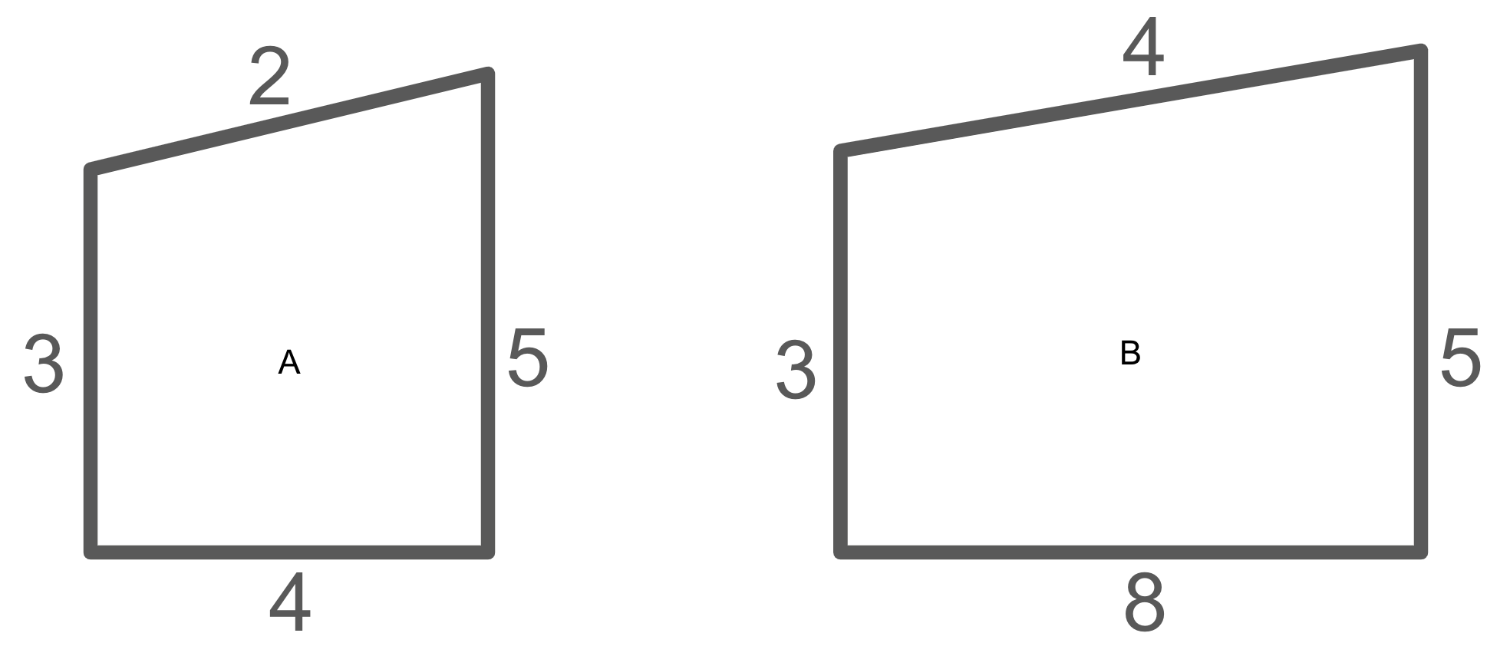
No - when dilating, you must compare at least two corresponding sides to see if there is a consistent scale factor.
These two triangles are similar. Find the missing side lengths.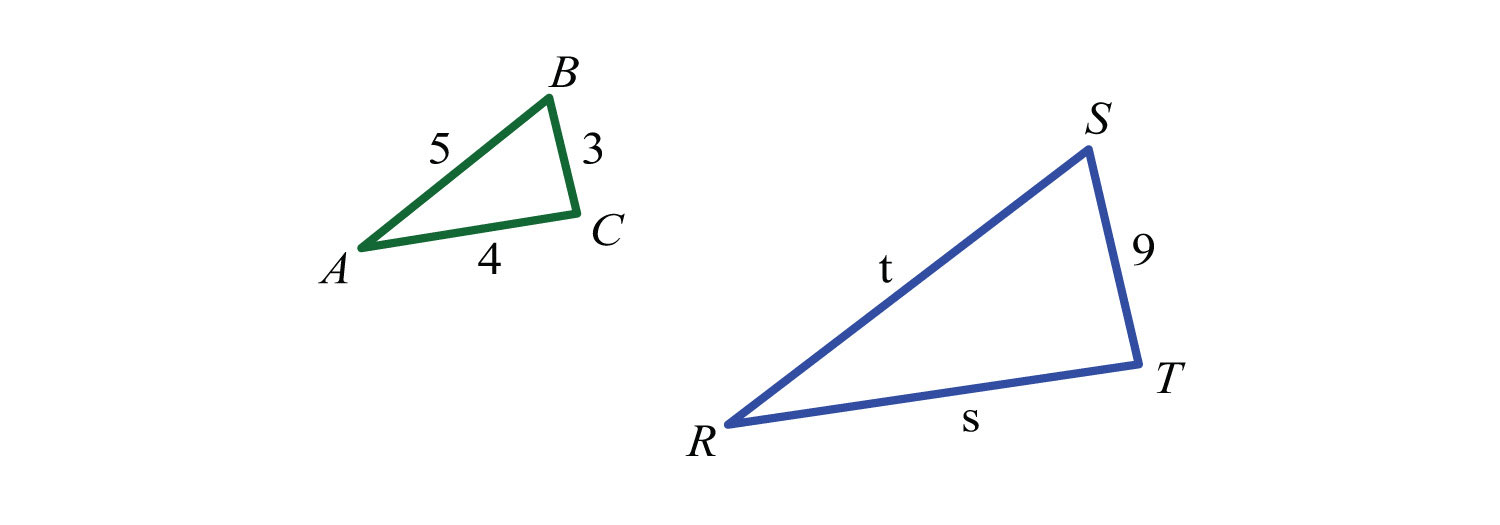
s=12
t=15
Write an equation for this line.
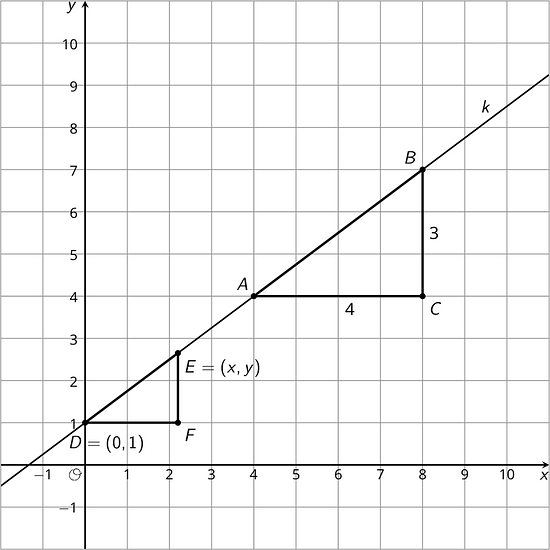
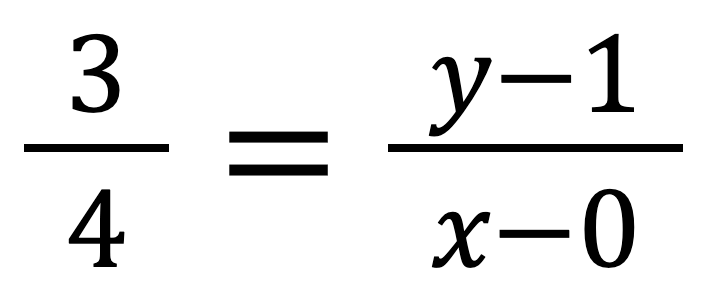
Or 3/4 = (y-1)/x
